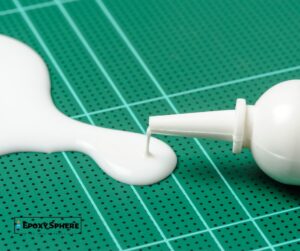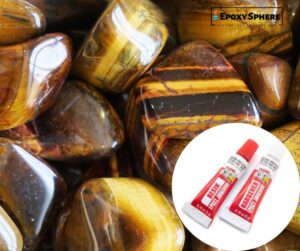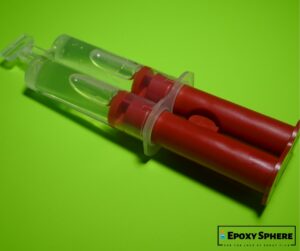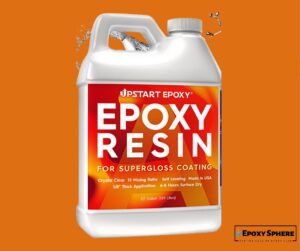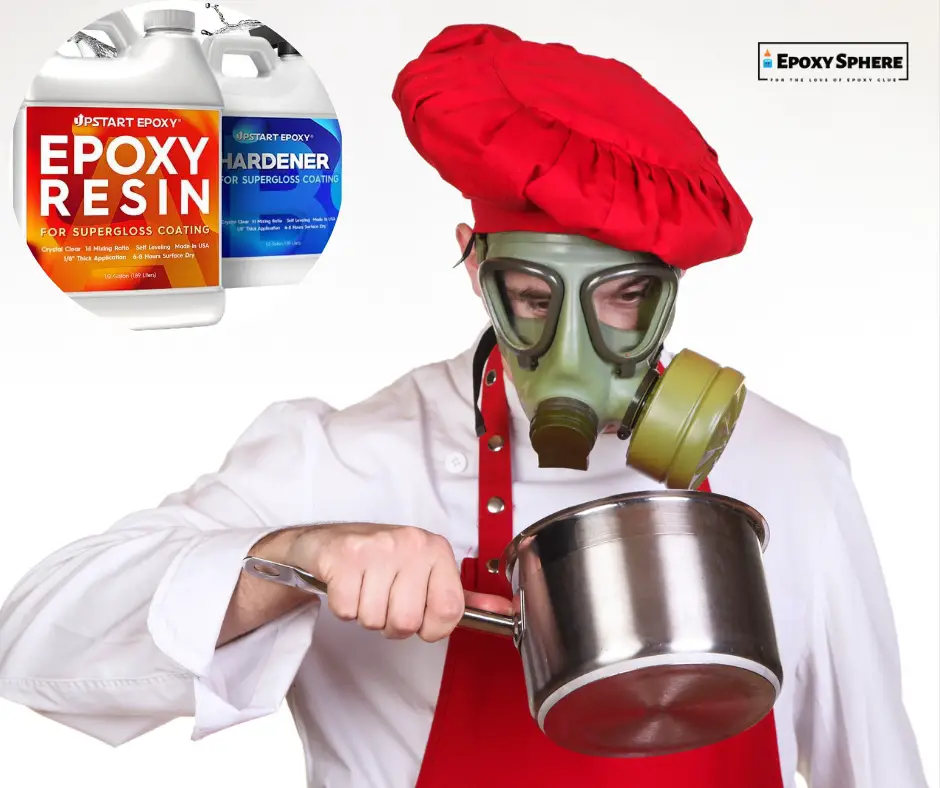
Epoxy resin poisoning is a potentially life-threatening condition that can occur when someone ingests epoxy resins, a type of plastic resin. Symptoms of epoxy resin poisoning can include nausea, vomiting, and diarrhoea.
In extreme cases, epoxy resin poisoning can lead to coma and even death. If you or someone you know has experienced any of the symptoms of epoxy resin poisoning, please seek medical attention as soon as possible.
What is epoxy resin composition?
The epoxy resin composition is a mixture of epoxy resin, hardener and filler. Epoxy resins are custom-made to meet the specific needs of a particular project.
Some common epoxy resin compositions include:
-75% epoxy resin and 25% hardener
-50% epoxy resin and 50% filler
-70% epoxy resin and 30% filler
Epoxy resin poisoning can be caused by exposure to the chemical epoxy resin. The most common source of exposure to epoxy resin is through occupational exposure, such as during the manufacturing and use of products that contain epoxy resin.
What are the symptoms of epoxy resin poisoning?
Epoxy resin poisoning symptoms vary depending on the amount and type of epoxy resin that is consumed. Ingestion of small amounts of epoxy resin can result in flu-like symptoms, such as fever, body aches, and chills. In more severe cases, epoxy resin poisoning can lead to kidney failure and even death.
Symptoms of epoxy resin poisoning may also include:
Allergies (Allergic Dermatitis)
Epoxy resin is a common additive in many polymeric products and can cause skin, eye, and respiratory irritation.
Symptoms may include itching, hives, difficulty breathing, and even death. Although epoxy resin poisoning is rare, it’s important to know the signs and symptoms so that you can get help if you’re affected.
One of the most common harmful reactions to epoxy resin is allergic dermatitis, which occurs because the body overreacts to an allergen. Other key factors in developing this condition are your immune system, frequency and degree of exposure.
Respiratory Irritation
Nosebleeds, sneezing, coughing, shortness of breath, chest tightness
Respiratory irritation is a common symptom of exposure to epoxy resin. Symptoms can include shortness of breath, coughing, chest pain, and rapid breathing.
If you are experiencing any of these symptoms, contact your doctor immediately.
If the epoxy mixed with the hardener reacts too quickly, there are chances that it’ll form toxic fumes which can cause various respiratory problems for you.
Resin and hardeners react during this process and produce adhesive vapours. These particles can also lead to respiratory health issues such as irritation or asthma when inhaled.
Nausea and Vomiting
Epoxy resin poisoning symptoms can vary, but common ones include nausea and vomiting. Other symptoms may include dizziness, drowsiness, and headache. If you experience any of these symptoms, please consult a healthcare professional.
Diarrhoea and Abdominal pain
Epoxy resin poisoning can cause diarrhoea. The symptoms of epoxy resin poisoning generally develop within a few hours after exposure and can include nausea, vomiting, and diarrhoea. In severe cases, epoxy resin poisoning can lead to liver failure and death.
Treatment for epoxy resin poisoning may include supportive care, such as fluids and electrolytes, and medication to control nausea and diarrhoea. If liver failure or death is suspected, immediate hospitalization is required.
Abdominal pain is a common symptom of epoxy resin poisoning. Diarrhoea is also a common symptom of epoxy resin poisoning.
Fatigue and Confusion
Epoxy resin poisoning symptoms can include fatigue and confusion. These symptoms may develop rapidly after exposure to epoxy resin, and may be accompanied by a headache, nausea, and rash. In more serious cases, epoxy resin poisoning can cause seizures, coma, and death.
Skin Cancers
Epoxy resins are a type of adhesive that is used in many products, including paints, varnishes, and sealants. These resins can form cancer-causing chemicals when they are exposed to the sun.
Epoxy resins can cause skin cancer in a number of ways: by creating carcinogens when they are exposed to sunlight or heat, by causing the skin to become thicker and more resistant to the sun’s ultraviolet (UV) rays, or by forming tumours when they are absorbed into the skin.
If you have signs or symptoms of skin cancer, you should see a doctor as soon as possible. Skin cancers can be deadly if not treated quickly and effectively.
Some plastics contain carcinogenic ingredients that can lead to skin cancer. So make sure you choose formulas that are 100% safe and free from harmful compounds.
Seizures and Convulsions
Epoxy resin is a common ingredient in many types of adhesives and sealants. These products can cause seizures in people who are exposed to them, especially if they have a history of seizures.
Seizures are a common and serious complication of epilepsy. A seizure can be any kind of abnormal, uncontrolled movement or action of the brain and spinal cord.
A seizure may start with a sudden, unexpected change in behaviour, sensations, or consciousness. If left untreated, seizures can lead to serious lifelong consequences, including injury or death.
There is no one symptom that always indicates a seizure is happening. Instead, seizures can be unpredictable and may vary in intensity from one person to the next.
Epoxy resin poisoning can cause convulsions. Acute poisoning with epoxy resin can cause convulsions, which may progress to grand mal seizures. In severe cases, brain damage and death can occur.
Extreme body temperature fluctuations (High Fever)
Epoxy resin poisoning can cause extreme body temperature fluctuations.
When epoxy resin poisoning occurs, the body’s temperature can suddenly go up or down. This is called a fever response.
The fever response may last for hours or days. It can be very dangerous because it can cause seizures, brain damage, and even death.
If you are Poison Control Center (PCP) callers reporting a patient with an extreme body temperature fluctuation, be sure to ask about the following:
- What is the patient’s temperature?
- What are the patient’s mood and behaviour?
- Has the temperature been stable over the past few hours?
- What are the causes of the fever response, such as epoxy resin poisoning?
Symptoms of epoxy resin poisoning may include a high fever, muscle aches, and fatigue.
Chemical Burns
Epoxy resins are a class of chemicals that are widely used in the construction and automotive industries. They are also used in a variety of other applications, including in household products and cosmetics. Epoxy resins are often known for their strong, durable properties.
When the epoxy resin is exposed to acids or bases, it can react to form hydrocarbons and carbon dioxide. This reaction can cause a chemical burn on the skin. The burn may look like a red, blistering skin lesion. It may also produce heat, smoke, or gas. Treatment for a chemical burn from epoxy resin depends on the severity of the injury.
How can epoxy resin poisoning be prevented?
Epoxy resin poisoning can be prevented by following these simple guidelines:
- Use a dust mask when working with epoxy resins.
- Avoid breathing the vapours from epoxy resins.
- Keep epoxy resins out of the reach of children.
- Wash your hands thoroughly after working with epoxy resins.
How can epoxy resin poisoning be treated?
There is no single answer to this question as the treatment for epoxy resin poisoning will vary depending on the severity of the poisoning, the person’s health and any specific symptoms that are present.
However, some general tips that may be helpful in treating epoxy resin poisoning include:
- Remove any affected clothing and wash it thoroughly in cold water to remove any toxins that may be present.
- If possible, drink plenty of fluids to help flush out toxins from the body.
- If nausea or vomiting is present, try to eat light foods and avoid alcohol because it can make the condition worse.
- Place a cool cloth on the forehead or neck if temperatures are elevated.
- Seek medical attention if symptoms worsen or if there is an allergic reaction to epoxy resin.
What should you do if you experience epoxy resin poisoning?
If you experience epoxy resin poisoning, the first thing you should do is call 911.
While there is no definitive timeline for how long symptoms will last, most people recover within a few hours.
If you develop any serious symptoms (e.g., seizures, difficulty breathing), then you should seek medical attention as soon as possible.
What if You Inhale too much Resin Fume?
If you are unfortunate enough to inhale too much resin fume, the first thing you should do is leave the area and get fresh air. If you are unable to leave the area or if you experience shortness of breath, call 911.
While it is unlikely that you will die from epoxy resin poisoning, it is possible to experience long-term health problems such as respiratory problems, memory loss, and even blindness.
In its liquid state, epoxy evaporates to form respirable fumes. Ingesting too much of this material can lead to asthma and sensitization.
Symptoms of asthma include inflammation and irritation in the lungs, nose, and throat and sensitization occurs when you experience an allergic reaction after exposure to resin.
What Can Resin Do to Your Lungs?
Epoxy resin poisoning can happen when someone is exposed to high concentrations of the substance. Symptoms of epoxy resin poisoning can include shortness of breath, chest pain, coughing, and pneumonitis (infection of the lungs). In severe cases, epoxy resin poisoning can lead to respiratory arrest and death.
Breathing epoxy vapours can cause asthma, a chronic health condition. Asthma is triggered by exposure to resin in varying degrees. These sensations of asthma range from mild to severe, and the severity of asthma may change over the course of the condition.
Can Resin Fumes Make You Sick?
Resin fumes can cause symptoms like temporary irritation and sensitization.
You shouldn’t inhale the fumes, but you may be exposed to them. As with all chemicals, they are toxic if they’re misused.
Read instructions on the resin carefully before working with it. This will enable you to work safely with epoxy for a long time.
Tips to Avoid Getting Poisoned
Epoxy resin poisoning is a serious health issue that can be life-threatening. In case you are ever involved in an accident that creates a hazardous chemical spill, is aware of the following tips to help protect yourself from getting poisoned:
- If you are exposed to epoxy resin, do not touch your eyes, skin, or clothing; immediately wash your hands with soap and water. If you have any symptoms such as shortness of breath, difficulty breathing, nausea, vomiting, or diarrhoea, seek medical attention.
- If exposed to the epoxy resin while working with the substance, wear protective clothing including a face mask and gloves. If possible, do not return to work until you have been evaluated by a doctor and cleared by safety personnel.
- Exposed to epoxy resin on purpose (for example, through using the substance in a lab experiment), take precautions to avoid being poisoned including wearing appropriate personal protection gear and disposing of the material properly.
Summary
Epoxy resin poisoning symptoms can vary depending on the amount and type of epoxy resin ingested.
If someone you know has ingested epoxy resin, seek medical attention immediately. or you are experiencing any of the signs and symptoms of epoxy resin poisoning, seek medical attention as soon as possible.
If you have any questions about epoxy resin poisoning, or if you experience any unusual symptoms after using epoxy resin products, please call the poison control centre at 1-800-222-1222.

Hi, This is John Davis. After years of working in the construction industry, I decided to create a website that would provide people with information about glue and its exceptional uses. I hope You find it useful

